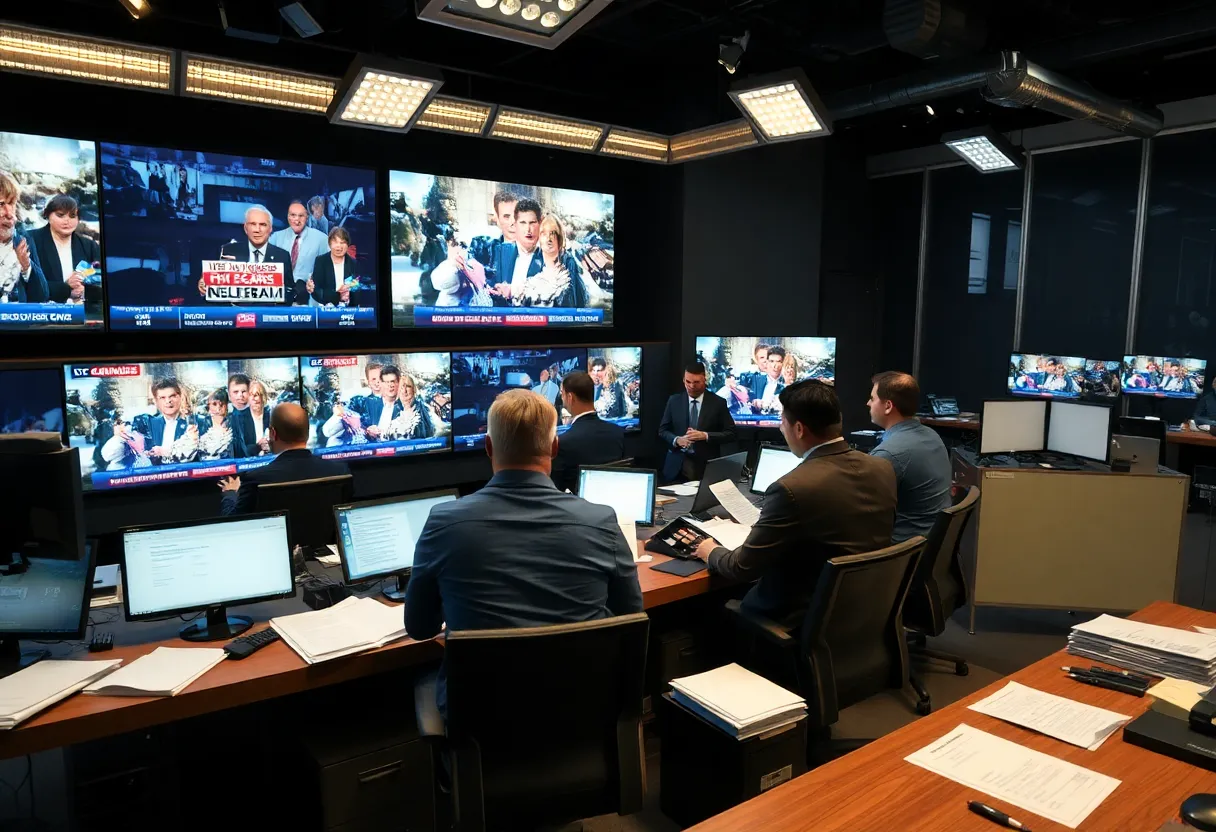News Summary
CBS News is set to release the unedited transcript of Vice President Kamala Harris’s ‘60 Minutes’ interview following a request from the FCC due to former President Trump’s $10 billion lawsuit. Trump claims CBS manipulated the interview, leading to legal scrutiny of the network’s editorial practices. CBS refutes these allegations, asserting the right to editorial judgment while navigating the implications of potential settlement talks that could impact media independence. This case underscores ongoing tensions between the media and political figures, raising questions about press freedom and accountability.
CBS Set to Release Transcript of Kamala Harris Interview Amidst Trump’s Legal Battles
In a significant twist on the media front, CBS News is gearing up to release the unedited transcript of a much-discussed “60 Minutes” interview featuring Vice President Kamala Harris. This move comes in response to a request from the Federal Communications Commission (FCC) as part of a lawsuit filed by former President Donald Trump, who has taken aim at the network with a staggering $10 billion claim.
The Lawsuit Explained
The entire situation kicked off when Trump accused CBS of manipulation, alleging that the network had engaged in “deceptive editing” to boost Harris’s campaign. According to him, the interview didn’t present an accurate portrayal of Harris’s statements, particularly when discrepancies emerged in her responses regarding Israeli Prime Minister Netanyahu. These claims have led to Trump’s intense legal scrutiny of CBS’s editorial choices—something many see as an unusual step for an ex-president.
FCC Gets Involved
Adding fuel to the fire, the FCC, under the leadership of Trump appointee Brendan Carr, decided to probe deeper by requesting “the full, unedited transcript and camera feeds” from the controversial interview that first aired in October. CBS representatives have acknowledged that they are legally bound to comply with the FCC’s inquiry, bringing the spotlight firmly back onto the network.
CBS’s Response
While CBS News is preparing the transcript, the network maintains that Trump’s allegations of “deceptive editing” are unfounded and “completely without merit.” The media company’s legal team has stressed that they will vigorously defend their decisions under the protections of the First Amendment, championing the freedom of editorial judgment and expression.
The Bigger Picture
This situation has stirred quite a bit of controversy among media law experts and journalists. Many view Trump’s lawsuit as an eccentric method to exercise influence over the press, with critics including Anna Gomez, a Democratic commissioner at the FCC, suggesting that the request is more about intimidation than accountability.
The Implications of a Settlement
As CBS’s parent company, Paramount, has begun discussions to potentially settle the lawsuit, concerns are surfacing. Some CBS journalists worry that a settlement could compromise the credibility of their reporting. They fear that yielding to Trump’s demands might set a dangerous precedent in media operations and independence.
What Lies Ahead?
The FCC’s involvement is particularly noteworthy, given that it’s not common for such agencies to request raw materials from news outlets. They usually focus on broader regulatory issues rather than individual broadcasts. As the FCC reviews its stance and the merger implications for Paramount, Trump’s complaint is expected to play a significant role in the commission’s considerations.
Broader Context of Trump’s Legal Maneuvers
This isn’t the first time Trump has taken aim at media companies. Reports indicate that he has previously pursued legal actions against other organizations, resulting in substantial settlements. His latest actions raise questions about how they might shape relationships between the press and those in power.
The Takeaway
This unfolding saga is a fascinating example of how politics, media, and the law intertwine, and it promises to keep both the journalism community and the public eye engaged. As CBS prepares to unveil the full transcript, many will be watching closely to see how the narrative develops and what it could ultimately mean for media integrity and freedom of speech in the long run.
Deeper Dive: News & Info About This Topic







